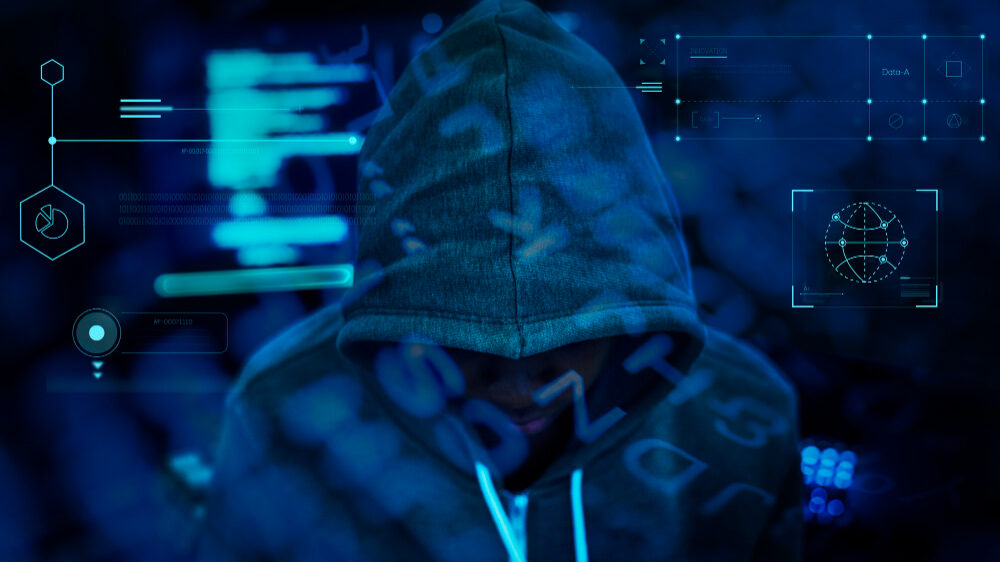Introduction: Your Business is Thriving, But So Are the Hackers
Every time your team logs in, sends an invoice, updates inventory, or closes a deal online, you’re exposing your business to digital risk. In 2025, cyber threats aren’t just a tech issue; they’re a business survival issue, especially for Nigerian SMEs that operate in a fast-moving, digitally powered market.
From phishing scams to ransomware attacks, Nigerian businesses are now prime targets for increasingly sophisticated cybercriminals. The more you digitise your operations, the more you need to secure them.
In this guide, we break down the top 5 cyber threats Nigerian businesses must watch for in 2025 and what you can do to protect your systems, finances, and customer trust before it’s too late.

1. Ransomware Attacks
Ransomware locks you out of your files or systems until you pay a ransom, usually in cryptocurrency. These attacks often sneak in through phishing emails, infected attachments, or weak software links.
Why Nigerian Businesses Should Care
- SMEs are often under-protected, making them easy targets.
- A single ransomware attack can halt operations, damage customer trust, and cost millions.
How to Stay Safe
- Backup your data regularly, using both cloud and offline storage.
- Keep antivirus software up to date.
- Train staff to recognise suspicious emails and links.
2. Business Email Compromise (BEC)
BEC scams are on the rise in Nigeria. Cybercriminals impersonate CEOs, vendors, or finance officers to trick employees into sending money or confidential data.
Why It’s Dangerous
- Nigeria is a global hotspot for BEC-related fraud.
- One small mistake can lead to massive financial loss or a legal nightmare.
Protective Measures
- Always verify payment or transfer requests through a phone call.
- Use two-factor authentication for all email accounts.
- Train employees to spot fake email addresses and urgent-sounding requests.
3. Insider Threats
Sometimes the threat isn’t a hacker. It’s someone inside your company. Disgruntled staff, careless interns, or third-party vendors can accidentally or intentionally expose your systems.
Common Insider Mistakes
- Storing sensitive files on personal devices
- Sharing passwords or leaving systems logged in
- Downloading unapproved apps or extensions
How to Reduce the Risk
- Set user access limits. Only give access to what’s necessary.
- Monitor internal activity on your network.
- Conduct regular cybersecurity awareness sessions.
4. Phishing and Social Engineering
Phishing is still one of the most successful cyberattack methods. Hackers trick users into giving up passwords or sensitive data through fake emails, texts, or websites.
Why It Still Works
- Many staff aren’t trained to spot convincing fakes.
- Attackers are getting more creative, mimicking banks, clients, or government portals.
Tips for Prevention
- Use strong spam filters and email security tools.
- Don’t click links or download attachments from unknown sources.
- Hold quarterly refresher training sessions with real phishing examples.
5. Outdated Software and Unpatched Systems
Still using that Windows 7 machine in the corner office? Or relying on software that hasn’t been updated in years? That’s a hacker’s dream.
Why It’s a Major Threat
- Old systems are filled with known vulnerabilities.
- Hackers can exploit these gaps with minimal effort.
What You Should Do
- Turn on automatic updates on all systems.
- Invest in a patch management solution or partner with a managed IT provider.
- Regularly review all hardware and software for upgrade opportunities.
Why Nigerian Businesses Are Attractive to Hackers
The truth is that Nigerian SMEs are often low-hanging fruit for cybercriminals. Here’s why:
- Many lack formal cybersecurity policies.
- Staff are unaware of modern attack techniques.
- IT teams are often stretched thin or non-existent.
The good news is that with the right tools and training, you can prevent most attacks before they happen.
How Adler Technology Can Help You Stay Protected
At Adler Technology, we help Nigerian businesses secure their digital systems without overcomplicating things. Whether you’re a two-person team or scaling to fifty, we provide solutions built for real-world conditions.
Our Cybersecurity Services Include
- Full security audits tailored to your industry
- 24/7 threat monitoring and response
- Automated cloud and local data backups
- Staff cybersecurity training and simulations
- Antivirus, firewall, and endpoint protection
We don’t sell hype. We help you build real resilience.
FAQs: Cybersecurity for Nigerian SMEs
What is the most common cyber threat in Nigeria right now?
Phishing and ransomware attacks are the most reported, especially among SMEs with low employee training.
Is cybersecurity expensive for small businesses?
Not necessarily. Basic protections like antivirus, backups, and training go a long way. Adler offers packages tailored to different budgets.
Are backups really worth it?
Yes. Backups are often the only way to recover data after an attack.
How often should I update my cybersecurity plan?
At least once a year, or sooner if your business expands or handles sensitive customer data.
Conclusion
Cyber threats are not a distant problem. They are happening right now, targeting Nigerian businesses every day. But with awareness, smart systems, and the right partner, you don’t have to be a victim.
Take control. Build resilience. Stay one step ahead of cybercriminals.
Let Adler Technology help you protect what matters most.
📞 Call +234 901 994 4449
🌐 Visit AdlerTechnology.com.ng



